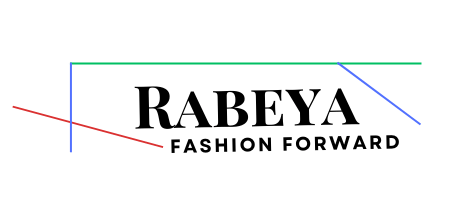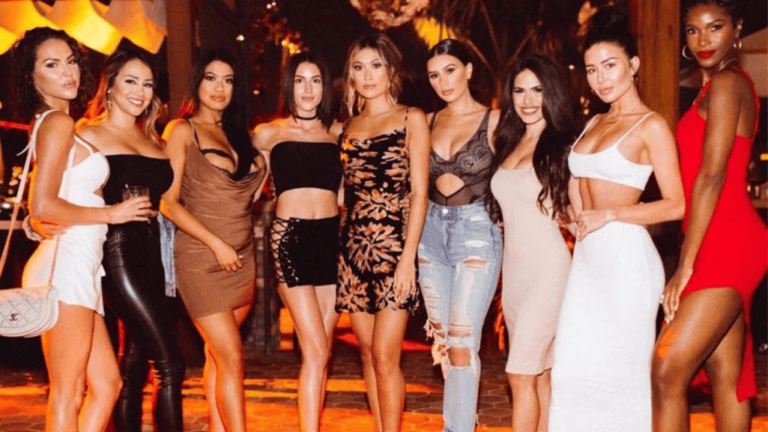Uniqlo, the trendy Japanese clothing brand, has gained immense popularity for offering fashionable and affordable clothing. However, there has been ongoing speculation about whether Uniqlo can be classified as a fast fashion brand. In this article, we aim to uncover the truth and shed light on the practices and sustainability efforts of Uniqlo. By examining various sources and delving into the brand’s history and impact, we will determine whether Uniqlo indeed falls under the fast fashion umbrella.
Key Takeaways:
- Uniqlo is a renowned Japanese clothing brand known for its trendy and affordable fashion.
- There is ongoing debate about whether Uniqlo can be classified as fast fashion.
- We will analyze various sources and examine Uniqlo’s practices and sustainability efforts.
- Understanding fast fashion’s impact is crucial in determining Uniqlo’s classification.
- Consumer awareness and responsible shopping play a significant role in shaping the fashion industry’s future.
Understanding Fast Fashion and Its Impact
Fast fashion brands have become synonymous with trendy affordable fashion, catering to the ever-changing tastes and demands of fashion-conscious consumers. This business model, popularized by Japanese fast fashion brands like Uniqlo, focuses on producing cheap clothing that quickly follows the latest fashion trends.
With its emphasis on speed and consumer demand, fast fashion has serious consequences for both the environment and labor practices within the industry. Unethical labor practices, such as low wages and unsafe working conditions, are prevalent in fast fashion supply chains. The need for rapid production also takes a toll on the environment, leading to pollution and excessive textile waste.
Uniqlo, as a renowned Japanese fast fashion brand, often faces scrutiny and questions about its classification within the fast fashion space. It is important to evaluate the practices and impacts associated with Uniqlo’s operations to determine its standing within the industry.
The Negative Impacts of Fast Fashion:
1. Unethical Labor Practices: Fast fashion brands often source their garments from factories with poor working conditions and low wages, leading to exploitation of workers in the garment industry.
2. Environmental Pollution: The production of fast fashion involves the use of toxic chemicals, contributing to water pollution and environmental degradation.
3. Excessive Textile Waste: Fast fashion promotes a culture of disposability, with garments discarded after only a few wears, resulting in massive textile waste that ends up in landfills.
Unveiling Uniqlo's Practices:
To determine Uniqlo’s classification within the fast fashion industry, we will delve into the brand’s manufacturing processes, labor practices, and sustainability efforts. By examining these factors, we can gain insights into Uniqlo’s commitment to ethical and sustainable fashion.
Stay tuned as we explore the history of fast fashion, the environmental impact it has, and the role Uniqlo plays in shaping the fashion industry’s future.
The History of Fast Fashion
Fast fashion emerged in the late 1990s and early 2000s, fueled by the rise of online shopping and the success of brands like H&M and Zara. These brands quickly capitalized on the demand for trendy and affordable clothing, leveraging their ability to produce and replicate runway-inspired designs at an unprecedented speed.
This marked a significant shift in consumer shopping habits, as fashion became more disposable and driven by ever-changing trends. The garment industry experienced a transformation where clothing was no longer viewed as an investment but rather as a short-lived fashion statement.
During this time, Uniqlo also entered the market, offering its own take on fast fashion. Its emphasis on stylish and budget-friendly clothing contributed to the brand’s popularity among consumers seeking the latest fashion trends at accessible prices.
Fast fashion brands like Uniqlo played a pivotal role in shaping the garment industry by making fashion more affordable and accessible. However, it also came at a price, as concerns regarding labor practices, environmental impact, and the ethical implications of the industry began to surface.
Key Players in the Fast Fashion Movement
The fast fashion boom was driven by a handful of influential brands that revolutionized the way clothing was produced and consumed. The following table highlights some key players in the fast fashion movement:
| Brand | Year Founded | Country of Origin |
|---|---|---|
| H&M | 1947 | Sweden |
| Zara | 1974 | Spain |
| Uniqlo | 1984 | Japan |
| Forever 21 | 1984 | United States |
The influence of these brands extended beyond borders, with their rapid production cycles and extensive retail networks reshaping the fashion landscape globally. While fast fashion provided affordability and variety, it also brought to light serious concerns regarding sustainability, labor rights, and its impact on the environment.
The Environmental Impact of Fast Fashion
Fast fashion brands like Uniqlo have a significant environmental impact due to their production practices. One of the major contributors to environmental damage is the use of **toxic chemicals**, such as dyes, in the manufacturing of cheap clothing. These chemicals often **pollute water sources** and have harmful effects on aquatic ecosystems.
Another environmental concern associated with the fast fashion industry is the **generation of textile waste**. Fast fashion encourages a culture of disposable clothing, where garments are worn only a few times and then discarded. This leads to an alarming amount of **textile waste**, which ends up in landfills and contributes to pollution.
To fully understand Uniqlo’s specific environmental impact, it is important to examine its **manufacturing processes and practices**. This analysis will shed light on the brand’s efforts to reduce pollution, minimize the use of toxic chemicals, and address the issue of textile waste.
The Impact of Toxic Chemicals
The production of fast fashion involves the use of **harmful chemicals**, including dyes, bleaches, and finishing agents. These chemicals not only pollute water sources but also pose risks to the health of manufacturing workers and consumers. The improper disposal of these chemicals can have long-lasting effects on ecosystems and local communities.
The Issue of Textile Waste
Fast fashion’s emphasis on quick turnover and low-priced clothing contributes to a **throwaway culture**. The constant demand for new trends leads to a staggering amount of textile waste, as garments are discarded after only a few wears. This waste ends up in landfills, where the decomposition of synthetic materials releases harmful greenhouse gases.
Uniqlo's Sustainable Practices
Examining Uniqlo’s commitment to sustainability and environmental responsibility is crucial in understanding its overall impact. The brand has implemented initiatives to reduce the use of harmful chemicals and explore innovative ways to minimize textile waste. By incorporating more sustainable materials and promoting recycling and reusing programs, Uniqlo aims to mitigate its environmental footprint.
The Push for Change
As consumers become more aware of the environmental impact of fast fashion, there is a growing demand for change within the industry. Brands like Uniqlo face increasing pressure to adopt sustainable practices and prioritize environmental stewardship. The collective efforts of both brands and consumers are necessary to drive meaningful change and create a more sustainable future for the fashion industry.
Unethical Labor Practices and Human Rights Concerns
Fast fashion is known for its exploitative labor practices, often characterized by low wages, long working hours, and unsafe conditions for garment workers. This section will examine Uniqlo’s labor practices and treatment of its workers to determine if they align with the unethical practices commonly associated with fast fashion brands.
The Reality of Fast Fashion Labor Practices
Garment workers in the fast fashion industry are often subjected to unfair labor conditions. They experience significantly low wages that fail to meet even basic living standards, resulting in widespread poverty and exploitation. Moreover, long working hours without proper compensation, hazardous working environments, and limited access to healthcare and social protections are all pressing concerns faced by these workers.
Worker Exploitation: A Global Problem
Worker exploitation is not limited to a specific region; it occurs worldwide in the fast fashion supply chain. Many garment workers, particularly in countries with weak labor laws and minimal regulations, endure dire working conditions in order to meet the demands of brands like Uniqlo. The urgency to produce fashionable clothing at a rapid pace often compromises the rights and well-being of these workers.
Examining Uniqlo's Labor Practices
Uniqlo, as a prominent player in the fast fashion industry, is under scrutiny for its labor practices. It is crucial to assess how Uniqlo’s garment workers are treated and whether the company actively addresses the concerns surrounding worker exploitation. Transparency in Uniqlo’s supply chain and manufacturing processes is of utmost importance in evaluating its commitment to fair labor and worker welfare.
| Issues | Uniqlo’s Response |
|---|---|
| Low wages | **Uniqlo** has implemented measures to ensure fair wages for its factory workers, striving to exceed minimum wage requirements. |
| Working hours | Uniqlo has set limits on working hours and is committed to providing adequate rest days and overtime compensation to its workers. |
| Safety and working conditions | **Uniqlo** prioritizes the safety and well-being of its workers by implementing strict health and safety protocols in its factories. |
While Uniqlo might have made efforts to address some labor-related issues, it is essential to critically evaluate the company’s practices and ensure the rights of garment workers are upheld throughout its supply chain.
Uniqlo's Sustainability Efforts
Uniqlo, a renowned Japanese clothing brand, has recognized the importance of minimizing its environmental impact and embracing sustainability within the fashion industry. In its ongoing quest for eco-friendly practices, Uniqlo has implemented various initiatives that showcase its commitment to sustainable fashion.
Use of Innovative Manufacturing Methods
Uniqlo has been actively exploring cutting-edge production techniques to reduce its environmental footprint. One notable example is its innovative approach to producing jeans using a unique “circular denim” method. This process utilizes recycled cotton from jeans collected through the brand’s recycling program, reducing the need for virgin materials and minimizing textile waste. Uniqlo’s focus on eco-friendly manufacturing methods demonstrates its dedication to sustainable fashion.
Incorporation of Recycled Materials
In a bid to promote a circular economy and reduce resource consumption, Uniqlo has incorporated recycled materials into some of its product lines. By utilizing materials derived from plastic bottles and other post-consumer waste, Uniqlo helps divert these items from landfills and gives them new life as sustainable fashion pieces. This commitment to incorporating recycled materials aligns with the brand’s mission to prioritize sustainability throughout its supply chain.
Ethical and Transparent Supply Chain
Uniqlo recognizes the significance of a transparent supply chain in ensuring ethical practices and sustainable production. The brand collaborates with suppliers and manufacturing partners who uphold responsible labor practices and adhere to rigorous environmental standards. Uniqlo’s commitment to transparency allows consumers to make informed choices and support a brand that values sustainable and ethical fashion.
A Focus on Longevity
Uniqlo encourages consumers to adopt a more sustainable mindset by emphasizing the importance of longevity in clothing. By offering high-quality garments designed to withstand the test of time, Uniqlo promotes responsible consumption and reduces the demand for frequent replacements. This approach contributes to a shift away from fast fashion’s disposable nature toward a more sustainable fashion culture.
Continual Improvement and Innovation
Uniqlo understands that sustainability is an ongoing journey, and as such, the brand continuously seeks opportunities for improvement and innovation. Through collaboration with various organizations and partnerships, Uniqlo aims to develop and implement new technologies and practices that further enhance its sustainability efforts. By staying at the forefront of sustainable fashion, Uniqlo demonstrates its dedication to driving positive change within the industry.
| Sustainability Efforts | Description |
|---|---|
| Innovative Manufacturing Methods | Uniqlo’s implementation of unique production techniques, such as “circular denim,” reduces the environmental impact and minimizes textile waste. |
| Incorporation of Recycled Materials | Uniqlo incorporates recycled materials, including plastic bottles, in the production of some of its clothing lines, contributing to a circular economy. |
| Ethical and Transparent Supply Chain | Uniqlo collaborates with responsible suppliers and manufacturing partners, ensuring adherence to ethical labor practices and environmental standards. |
| A Focus on Longevity | Uniqlo promotes sustainable consumption by offering high-quality garments designed for durability, encouraging customers to prioritize longevity over disposability. |
| Continual Improvement and Innovation | Uniqlo constantly seeks opportunities for improvement and innovation to further enhance its sustainability efforts, collaborating with organizations to drive positive change. |
Uniqlo's Supply Chain Transparency

Transparency within the supply chain is crucial for understanding the ethical practices of clothing brands. Uniqlo, a popular Japanese fashion brand, recognizes the importance of transparency and has made efforts to provide insight into its supply chain. By examining its manufacturing partners and their labor practices, we can gain a clearer understanding of Uniqlo’s commitment to fair labor and sustainable manufacturing processes.
The Importance of Supply Chain Transparency
Supply chain transparency refers to the visibility and accessibility of information regarding the various stages of production, from sourcing raw materials to the final purchase of the product. For ethical consumers, transparency is essential as it allows them to make informed decisions and support brands that align with their values.
Uniqlo understands the significance of supply chain transparency in building consumer trust and ensuring accountability. By being transparent about their manufacturing partners, they demonstrate a commitment to ethical practices and fair labor conditions.
Examining Uniqlo's Manufacturing Partners
Uniqlo works with numerous manufacturing partners across different countries to produce its clothing. These partners play a crucial role in shaping Uniqlo’s supply chain and ultimately determining the working conditions and treatment of garment workers.
As part of Uniqlo’s commitment to transparency, they disclose the names and locations of their manufacturing partners on their website. This allows consumers to access information about the factories involved in producing Uniqlo garments, leading to better accountability and helping consumers make informed choices.
Focus on Labor Practices
When examining Uniqlo’s manufacturing partners, a key aspect to consider is their labor practices. Uniqlo strives to work with partners that uphold fair labor practices and prioritize the well-being of their workers.
In line with their commitment to transparency, Uniqlo has implemented rigorous guidelines and standards for their manufacturing partners, encompassing areas such as wages, working hours, and workplace safety. These guidelines aim to ensure that Uniqlo’s garments are produced under ethical and sustainable conditions.
Continuous Improvement and Collaboration
Uniqlo recognizes that transparency and responsible sourcing are ongoing journeys. They are committed to continuously improving their practices and collaborating with their manufacturing partners to promote fair labor and sustainability.
By fostering open lines of communication, sharing best practices, and investing in training programs for their manufacturing partners, Uniqlo aims to create a positive and transparent supply chain that prioritizes the welfare of workers and minimizes environmental impact.
Through these efforts, Uniqlo strives to build a sustainable and transparent supply chain that reflects their dedication to responsible business practices.
Consumer Awareness and Responsible Shopping
As conscious consumers, we hold the power to shape the fashion industry through our responsible shopping choices. By understanding the environmental and social impacts of fast fashion brands like Uniqlo, we can make informed decisions and contribute to a more sustainable fashion industry. Let’s explore some ways in which we can support brands that prioritize ethics and sustainability.
Educate Yourself on Conscious Consumerism
Conscious consumerism involves understanding the lifecycle of a product, including its production processes, materials used, and its impact on workers and the environment. By educating ourselves about the industry and staying informed about the latest developments in sustainable fashion, we can make more responsible choices when shopping.
Choose Quality over Quantity
One of the key principles of responsible shopping is to prioritize quality over quantity. Instead of purchasing trendy items that may lose their appeal after a few wears, consider investing in high-quality garments that are designed to last. By opting for timeless pieces, we can build a sustainable wardrobe that withstands the test of time.
Support Ethical and Sustainable Brands
When making purchasing decisions, seek out brands that are committed to ethical and sustainable practices. Look for certifications such as Fair Trade or GOTS (Global Organic Textile Standard) that ensure the brand adheres to strict social and environmental standards. By supporting these brands, we send a powerful message to the industry that ethical and sustainable fashion choices matter.
Consider Secondhand and Vintage Options
Another way to embrace responsible shopping is by exploring secondhand and vintage clothing options. By giving pre-loved garments a new lease on life, we reduce the demand for new production and minimize our environmental footprint. Thrift stores, online marketplaces, and vintage shops can offer unique and stylish pieces with a lower impact on the environment.
Participate in Clothing Swaps and Rental Services
Clothing swaps and rental services provide exciting opportunities to refresh our wardrobes without contributing to the excess production of new clothing. Consider organizing or participating in clothing swap events with friends or colleagues, where everyone can exchange items they no longer wear. Additionally, rental services allow us to enjoy new styles for special occasions without the long-term commitment.
Spread the Word
Lastly, raising awareness about conscious consumerism and responsible shopping is crucial. Share your knowledge and experiences with friends, family, and on social media platforms. By starting conversations and encouraging others to make sustainable fashion choices, we can collectively drive change and create a more ethical and planet-friendly fashion industry.
Let’s harness our power as conscious consumers to support brands that prioritize ethics and sustainability. Together, we can make a significant impact and contribute to a more responsible and sustainable fashion landscape.
Alternatives to Fast Fashion
As awareness of the negative impacts of fast fashion continues to grow, consumers are seeking sustainable alternatives that prioritize ethical labor practices and high-quality garments. These slow fashion brands provide conscious consumers with more responsible fashion options that align with their values.
1. Zady: Zady is a slow fashion brand dedicated to transparency and sustainable practices. They offer a curated collection of timeless and eco-friendly clothing, ensuring that each garment is ethically produced from start to finish.
2. Patagonia: Patagonia is renowned for its commitment to environmental and social responsibility. Their sustainable clothing is made using recycled materials, fair trade practices, and innovative technologies to minimize their ecological footprint.
3. Eileen Fisher: Eileen Fisher creates elegant and sustainable clothing that transcends trends. With a focus on organic fibers and responsible manufacturing processes, they promote slow fashion and conscious consumption.
Advantages of Slow Fashion Brands:
- Ethically sourced materials: Slow fashion brands prioritize sustainable and ethically sourced materials, reducing the environmental impact.
- Fair labor practices: These brands ensure that workers are paid fair wages and have safe working conditions.
- Long-lasting quality: Garments from slow fashion brands are made with superior craftsmanship and materials, resulting in durable and long-lasting clothing.
- Reduced waste: Slow fashion promotes minimalist wardrobes, encouraging consumers to invest in timeless pieces rather than participating in the cycle of disposable fashion.
By supporting these slow fashion brands, consumers can make a positive impact on the fashion industry and contribute to a more sustainable future.
The Future of Fashion

The fashion industry is at a pivotal moment, experiencing a shift towards sustainability and ethical practices. As consumers become more conscious of the environmental and social impacts of their fashion choices, brands are adapting to meet these evolving demands. The future of the fashion industry hinges on its ability to embrace sustainable fashion and prioritize responsible production methods.
Sustainable fashion is not just a passing trend; it is a movement that is gaining momentum and reshaping the industry. Consumers are seeking transparency, ethical labor practices, and eco-friendly designs. Brands like Uniqlo have an opportunity to play a significant role in shaping the trajectory of the fashion industry by adopting sustainable practices and catering to the demands of conscious consumers.
Adopting Sustainable Practices Is Uniqlo Fast Fashion?
Brands that take initiative and integrate sustainable practices into their business models are poised for success in the future of fashion. From using organic and recycled materials to implementing innovative manufacturing processes that minimize waste and pollution, there are numerous ways for brands to contribute to a more sustainable fashion industry.
One of the key aspects of sustainable fashion is embracing a circular economy. By prioritizing durability, quality, and repairability, brands can promote longevity in their products, reducing the need for constant consumption and minimizing textile waste. Uniqlo can lead the way by creating garments that are timeless and designed to last, encouraging consumers to make sustainable fashion choices.
Meeting Changing Consumer Demand
The sustainable fashion movement is driven by conscious consumers who want to align their values with their purchasing decisions. They are seeking brands that are transparent about their production processes, care about worker welfare, and actively work towards social and environmental responsibility.
Uniqlo can cater to these changing consumer demands by investing in supply chain transparency and ensuring fair labor practices. By forging partnerships with manufacturers that uphold ethical standards, the brand can build trust and credibility among consumers who value sustainability.
Collaboration and Innovation
The future of the fashion industry also relies on collaboration and innovation. Brands like Uniqlo can collaborate with sustainable fashion advocates, environmental organizations, and industry experts to drive change and promote greater sustainability. Through collaborations, brands can share knowledge and resources, leading to the development of innovative solutions that address the challenges of creating a more sustainable fashion industry.
Furthermore, embracing technological advancements can revolutionize sustainability in fashion. From using artificial intelligence for efficient inventory management to harnessing clean energy sources for production, brands can leverage technology to reduce their environmental impact and contribute to a greener future.
The Transformation of Fashion
The future of the fashion industry lies in its ability to transform and adapt to meet the demands of sustainable fashion. With brands like Uniqlo making strides towards sustainability, there is hope for a more conscious and responsible fashion industry. However, it is essential for both brands and consumers to remain committed to the sustainable fashion movement, as collective efforts are required to achieve lasting change.
Conclusion
After careful analysis, the classification of Uniqlo as a fast fashion brand remains the subject of debate. While Uniqlo offers trendy and affordable clothing, it has also taken steps to address sustainability and improve its manufacturing processes. This demonstrates a commitment to minimizing its environmental impact and working towards more responsible fashion practices.
However, the future of the fashion industry relies on more than just the efforts of brands like Uniqlo. Consumers also play a crucial role in driving change by making informed and responsible shopping choices. By supporting brands that prioritize ethics and sustainability, consumers can encourage the industry to prioritize these values.
With the convenience of online shopping, Uniqlo’s online platform provides a space for consumers to explore and purchase their products. This allows customers to access Uniqlo’s trendy and affordable clothing from the comfort of their own homes. However, it is important for consumers to consider the broader implications of their purchases and make conscious decisions that align with their values.
In the end, the ongoing sustainability and ethical challenges within the fashion industry require collective efforts from brands, consumers, and industry stakeholders. By prioritizing ethics and sustainability, we can shape a future where fashion is both stylish and responsible.
FAQ
Is Uniqlo considered fast fashion?
Uniqlo is often debated as a fast fashion brand due to its trendy and affordable clothing, but it has also made efforts to address sustainability and improve its manufacturing processes.
What is fast fashion?
Fast fashion refers to the production of cheap, trendy clothing that quickly follows the latest fashion trends. It is known for its speed and consumer-driven approach, but it is also associated with unethical labor practices, environmental pollution, and excessive textile waste.
What is the history of fast fashion?
Fast fashion emerged in the late 1990s and early 2000s with the rise of online shopping and the success of brands like H&M and Zara. These brands revolutionized the industry by quickly producing affordable clothing inspired by runway designs, shifting consumer shopping habits towards disposable and trend-focused fashion.
What is the environmental impact of fast fashion?
Fast fashion brands contribute to significant environmental damage through the use of toxic chemicals in production, such as dyes that pollute water sources. They also generate a large amount of textile waste, as clothes are often discarded after only a few wears.
Are fast fashion brands known for unethical labor practices?
Yes, fast fashion brands are often criticized for their exploitative labor practices. Workers in the industry face low wages, long hours, and unsafe working conditions. The issue of worker exploitation is a significant concern in the fast fashion industry.
What sustainability efforts has Uniqlo made?
Uniqlo has made efforts to address its environmental impact by launching initiatives to produce jeans using a new method and incorporating recycled materials into some of their products. They have also focused on implementing sustainable and eco-friendly practices throughout their manufacturing processes.
Is Uniqlo transparent about its supply chain?
Uniqlo’s supply chain transparency is important for understanding its ethical practices. They aim to be transparent about their manufacturing partners and their labor practices, allowing consumers to make informed choices about their purchases.
How can consumers shop responsibly and support sustainability?
Consumers can support sustainability by being aware of the environmental and social impacts of fast fashion brands like Uniqlo. They can make conscious and responsible shopping choices, favoring brands that prioritize ethics and sustainability.
What are the alternatives to fast fashion?
Slow fashion brands offer alternatives to fast fashion by prioritizing sustainability, ethical labor practices, and high-quality garments. These brands provide consumers with more sustainable and responsible fashion options.
What is the future of the fashion industry?
The fashion industry is shifting towards sustainability and ethical practices. As consumers become more conscious of their fashion choices, brands like Uniqlo can play a significant role in shaping the industry’s trajectory by prioritizing ethics and sustainability.


















